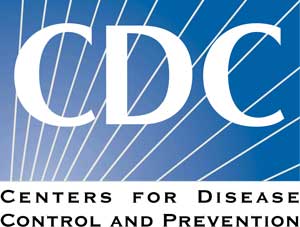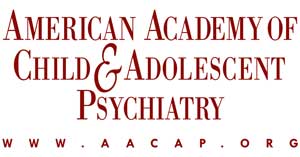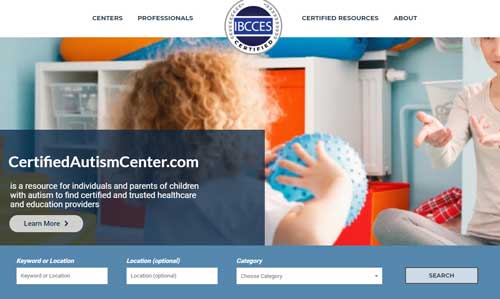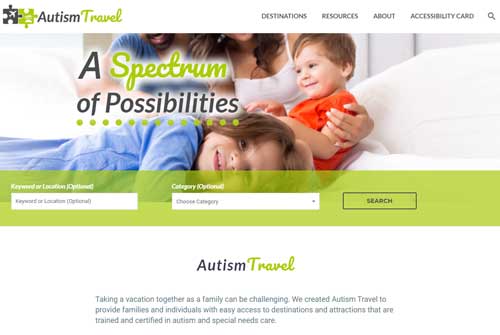
Parents naturally want the best for their children. However, parents with a child on the autism spectrum are faced with unique obstacles that other parents may never think about.
Everything from finding the right treatment plan, knowing which tools may help their child, and planning how to take a family trip or outing are all things that can take a vast amount of research and can be downright frustrating and exhausting when parents don’t know where to look or who to trust.
To put it simply, as a parent of a child with autism, finding reliable and trustworthy information about autism spectrum disorder (ASD) can be challenging.
ASD is currently the fastest growing disorder in the United States and it impacts one in every 44 children. New discoveries are constantly being made about the disorder and it can be difficult for parents to find and keep up with the latest research. Having access to credible autism resources can make navigating your child’s disorder a little bit simpler.
Below are five autism resources that provide information from trustworthy sources.
Parent Resources: Autism Society

The Autism Society may be one of the most comprehensive resources with just about everything you need to know about ASD.
Around for more than 50 years, the Autism Society has a mission of helping those on the spectrum enhance their quality of life while ensuring that these individuals are treated with respect, dignity, and are seen as valued and appreciated members of society.
This resource includes everything from updates in regards to COVID-19, ASD background information including causes and diagnosis, how to get involved in autism awareness, and information about public policy. They also have an entire section dedicated to living with autism, which includes topics such academic success, community inclusion, future planning, and how to navigate services.
Autism Society also has a collection of downloadable reports that can be helpful for families that have a member on the autism spectrum including:
- Building Our Future: Educating Students on the Autism Spectrum
- Next Steps: A Guide For Families New To Autism
- Growing Up Together (Elementary school)
- Growing Up Together (Middle school)
- Supporting Appropriate Behavior in Students with Asperger’s
- Preparing to Experience College Living
- Puberty and Children on the Autism Spectrum
- Siblings Perspectives: Guidelines for Parents
- Establishing Positive Sleep Patterns for Children on the Autism Spectrum
- Transition-Preparing_for_a_Lifetime
- Transition Across Grade Levels
- Transition_to_Middle_School
- Moving from Preschool to Kindergarten: Planning for a Successful Transition and New Relationships
- If You Are A Victim Of Crime
- Puzzle of Autism
- The National Crisis in Adult Services for Individuals with Autism: A Call to Action
- What_is_Autism?
- ¿Qué es Autismo?
The Autism Society also offers a national helpline and real stories from individuals on the spectrum.
Statistics and Information: Centers for Disease Control and Prevention

The Centers for Disease Control and Prevention, or CDC, offers resources about ASD that are rich with facts and statistics. The CDC is a great place to find the latest updates in autism research and have an entire 2020 community report dedicated to autism.
The CDC has sections that include:
- What is Autism Spectrum Disorder?- Facts, signs, causes, and what to do if you’re concerned
- Screening and Diagnosis- Information for families and health professionals
- Treatments- Types of treatment services and early intervention
- Materials and Multimedia- Fact sheets, videos, and community reports
- Research and Tracking- What we’ve learned
- Data and Statistics- Highlights
- Articles- Scientific articles and key findings
- About us- Overview of CDC’s work
The CDC is a helpful resource to learn more about autism in a variety of ways, and they are also the source of a significant amount of original data and statistics regarding autism. They are currently spearheading the Study to Explore Early Development (SEED) which is the “largest study in the United States to help identify factors that may put children at risk for ASD and other development disabilities.”
The CDC is also who funds the Autism and Developmental Disabilities Network (ADDM) which was created to:
- Describe the population of children with ASD,
- Compare how common ASD is in different areas of the country,
- Identify changes in ASD occurrence over time, and
- Understand the impact of ASD and related conditions in US communities.
This focus on autism and early development does not have parallel in other countries, making the US a leader in the understanding of autism. While autism prevalency is becoming much more of a concern in much of the rest of the world and awareness is rising steadily, there are still huge knowledge and awareness gaps throughout the U.S. and the world.
While the prevalence of autism is naturally going to vary somewhat by country, according to the World Health Organization autism prevalence is growing throughout the world. Each region is going to be different, and not every region has quality studies to refer to. Regardless of the prevalence of autism, autism happens across different countries and cultures and has very similar traits and characteristics. Each person with autism is quite different in their perception of the world regardless of where they are from, so the resources provided by the CDC can be useful for anyone of any country interested in learning more about autism.
Healthcare and Education Professionals: CertifiedAutismCenter.com
CertifiedAutismCenter.com is a resource meant for parents and individuals with autism that helps them find certified and trusted healthcare and education providers.
This resource connects families with healthcare professionals in a plethora of specialties including mental health, occupational therapy, and speech therapy, behavior interventions, and other specialties, all through a simple search
The Certified Autism Centers™ (CACs) and professionals found on this website have completed professional training and certification in autism and have made an ongoing commitment to education in cognitive health and sensory disorders. CACs are certified by IBCCES and the program is endorsed by the Autism Society.
IBCCES has been training and certifying professionals around the world since 2001. The impact has been incredible. Currently, over 34,000 professionals have been trained, 1,400,000 clients and students have been served by certified professionals, and 59,100,000 families and individuals have been impacted.
Kerry Magro, advocate and public speaker living on the spectrum, said “As someone who serves on the Panel of People on the Spectrum of Autism Advisors (PSA) for the Autism Society and as a board member of IBCCES, I’ve had the opportunity to see firsthand the tremendous work that both these groups continue to provide for our community. I’m thrilled with this endorsement from the Autism Society and I hope our families will be excited as they look at all the inclusive travel options IBCCES continues to provide. I can’t stress the impact that this will have in terms of forward progress, as when I was growing up on the autism spectrum I could only dream about having these options available for me and my family.”
On this website parents will not only find credible centers and professionals, but also an extensive collection of IBCCES-reviewed resources.
To find a local CAC click here.
Research: American Academy of Child and Adolescent Psychiatry

The American Academy of Child and Adolescent Psychiatry, AACAP, is a great resource for parents who are looking for everything from general information about autism to more detailed research.
AACAP offers quick facts, a popular “frequently asked questions” section, and resources to connect you with local healthcare providers. They also have information specifically for families and teenagers along with videos and suggested books. The AACAP focuses more on the psychological side of autism.
AACAP is a great place to start if you are new to learning about autism and want to gain a deeper understanding of the disorder.
Travel Resources and Information: Autism Travel
Autism Travel is a resource made for parents to be able to find organizations that have gone above and beyond to accommodate people with autism. Every location that is featured on Autism Travel is a Certified Autism Center™, which means at least 80 percent of their staff have completed an autism training and certification process and have committed to ongoing review and learning in cognitive disorders and autism.
Destinations may also have other resources such as sensory guides on location to help parents and people on the spectrum to know what kind of sensory input they can expect from different exhibits, rides or attractions. Many of these locations will have these resources featured on their website so that parents can utilize them for planning purposes. This can enable parents to plan out their whole day at a tourist destination and know how to accommodate for their child’s sensory needs before they even set foot on location, which can help to relieve anxiety for the caretaker and the person on the autism spectrum.
The site has a searchable directory full of all the different Certified Autism Centers™ as well as Certified Autism Travel Professionals if a travel agent is needed, as well as autism travel tips, information about the IBCCES Accessibility Card, and a collection of other resources.
The autism directory includes international locations such as Beaches Resorts in the Caribbean and SeaWorld and Six Flags locations across North America as well as many other destinations and attractions.
Products and Programs: Certified Autism Resources

CAR is a term used by IBCCES that stands for Certified Autism Resource to describe a product or service. The board of advisors of IBCCES has created the CAR program in order to determine if an autism resource meets at least one of the six areas of autism competency.
These six areas include:
- Autism overview
- Behavior competency
- Program development competency
- Early childhood identification competency
- Parent communication
- Comorbidities competency
The CAR application process consists of a comprehensive board review in order to determine how competent the autism resource is and how effectively it will meet the needs of the individual on the spectrum. The CAR resource provided by IBCCES helps connect parents to reliable resources that have undergone an extensive assessment.
Some of the resources that can be found through the CAR program include apps and learning tools, safety gear, apparel, therapeutic tools and gadgets, and assistive technology.
A full list of IBCCES approved resources can be found here.
Trustworthy Resources Provide Ease and Comfort
We recommend bookmarking these resources on your computer or smartphone to ensure quick access when you need new information. We hope you find them helpful and that they can provide a sense of ease and comfort for your family.
Interested in Autism Certification Options? Fill Out Form Below
AUG

